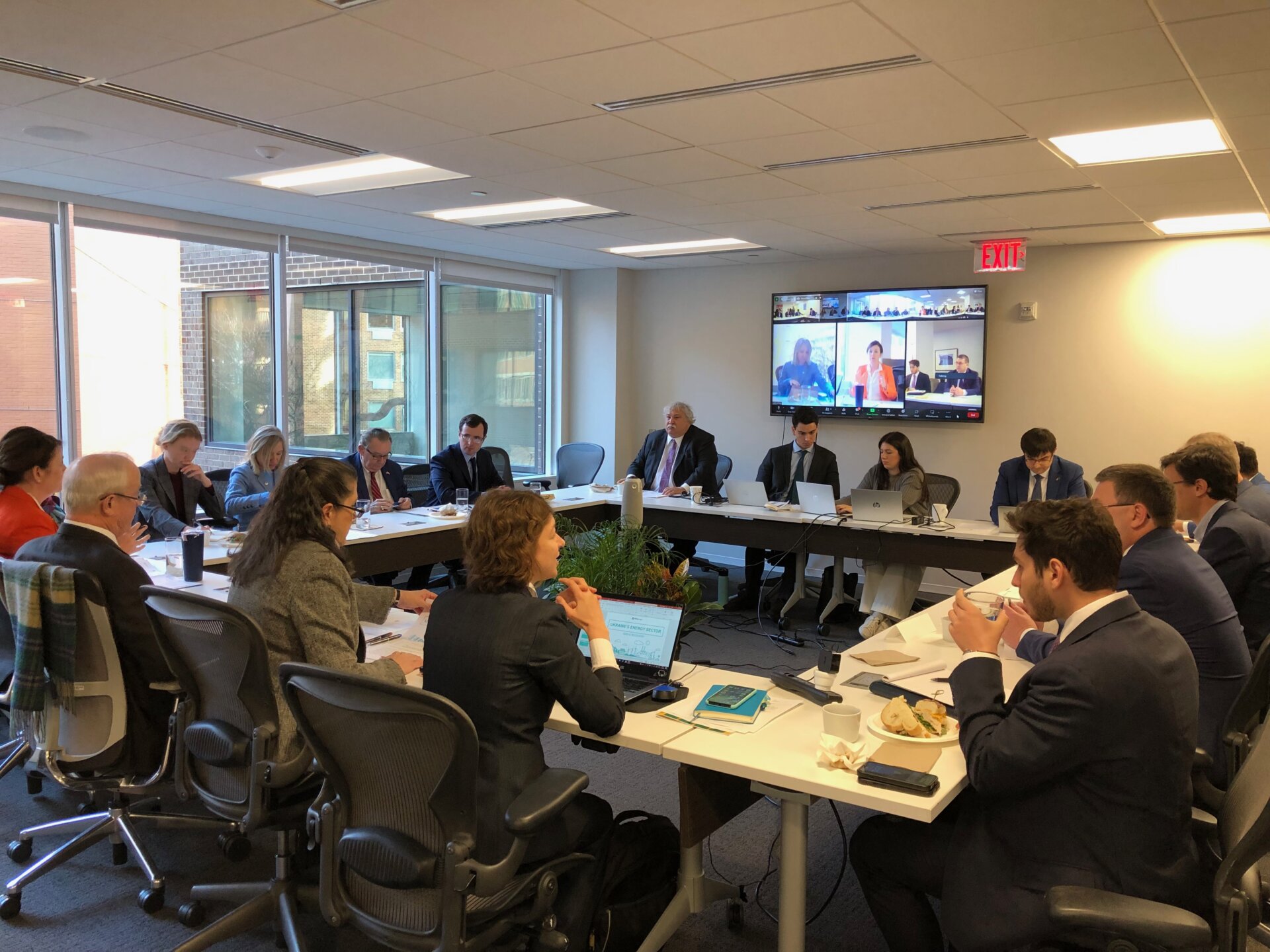On November 17th E3G in conjunction with the Dixi Group convened hybrid discussions on the main risks that may arise in the energy sector during the winter period in Ukraine, as well as what the Ukrainian energy sector needs in the short, medium, and long term for energy resilience and to ensure a clean recovery.
Key takeaways from the discussion on energy sector in Ukraine
- The US and Europe can deliver on some energy needs of Ukraine, but supply constraints prevent the international community from fully addressing needs in the short term.
- Access to electricity remains vital for the well-being of Ukrainian citizens alongside military implications. The attacks from Russian missiles and artillery aimed at Ukrainian infrastructure is exacerbating the humanitarian crises.
- Short-term access to materials for the existing infrastructure is essential for this winter, but so too is planning Ukraine’s energy infrastructure through local, regional, national, and international coordination after the war.
Speakers on Ukraine’s energy resilience and clean economy
In addition to Olena Pavlenko, head of DiXi Group, Yaroslav Demchenkov, Deputy Minister of Energy, Volodymyr Kudrytskyi from Ukrenergo, Dirk Buschle, Deputy Director of the Energy Community Secretariat, as well as Serhiy Sukhomlyn the mayor of Zhytomyr city, and Iryna Ozymok, International Mayors Summit presented detailed propositions and first-hand accounts from Ukraine.
On the US side, participants included US Representatives Lloyd Doggett and Jerry McNerney, Geoffrey Pyatt the Assistant Secretary for Energy Resources at U.S. Department of State, Assistant Administrator Erin McKee at the Bureau for Europe and Eurasia USAID, Paul Massaro a senior policy advisor for the U.S. Helsinki Commission, and Nazar Kholod the Ukraine country coordinator for the Net Zero World Initiative, Pacific Northwest National Laboratory.
Discussion
Practical and ongoing solutions to the energy crisis were discussed at both technical and political levels. For the US government ideas such as establishing an emergency stockpile for critical energy infrastructure (“Strategic Transformer Reserve”) would help prepare both actors for facing similar challenges in the future while highlighting the shortfalls for a policy response this winter. Continued coordination between the G7 is essential for building out the proposed “Energy Ramstein” to offer real value in the short-to-medium term. Leveraging international expertise was a significant recommendation by offering Ukraine access to personnel training, engineering training, and learning new technologies to overcome the challenges caused by the war.
With respect to a climate-compatible reconstruction, the group emphasized that while winning the war was the top priority, the planning for Ukraine’s future should start now. To that end developing a typology of cities and municipalities to differentiate between those which have suffered major damage to the infrastructure, those with some damage and those who have not yet been significantly impacted but are at risk is a clear priority. Additional coordination on the optimal use of funds between donor countries would aid an orderly and speedy rebuilding process. Lastly, involving public participation and fostering active civil society oversight of the reconstruction process, ensuring transparency, efficiency and effectiveness of investments is an urgent task to ensure donor country confidence.
Next steps
A more detailed briefing will be shared in the near future.
Please reach out to E3G or DiXi Group to become engaged in the process.


